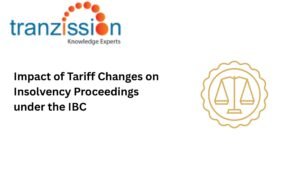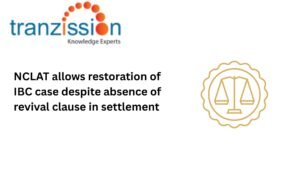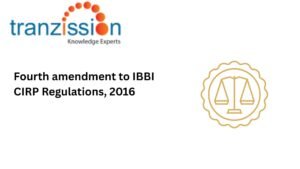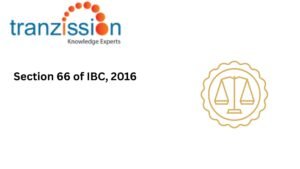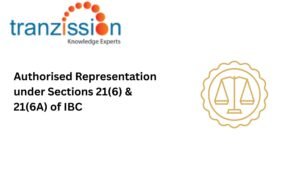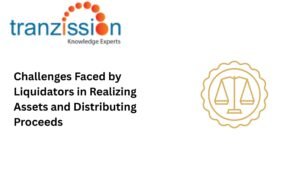
Offences and Penalties under IBC, 2016
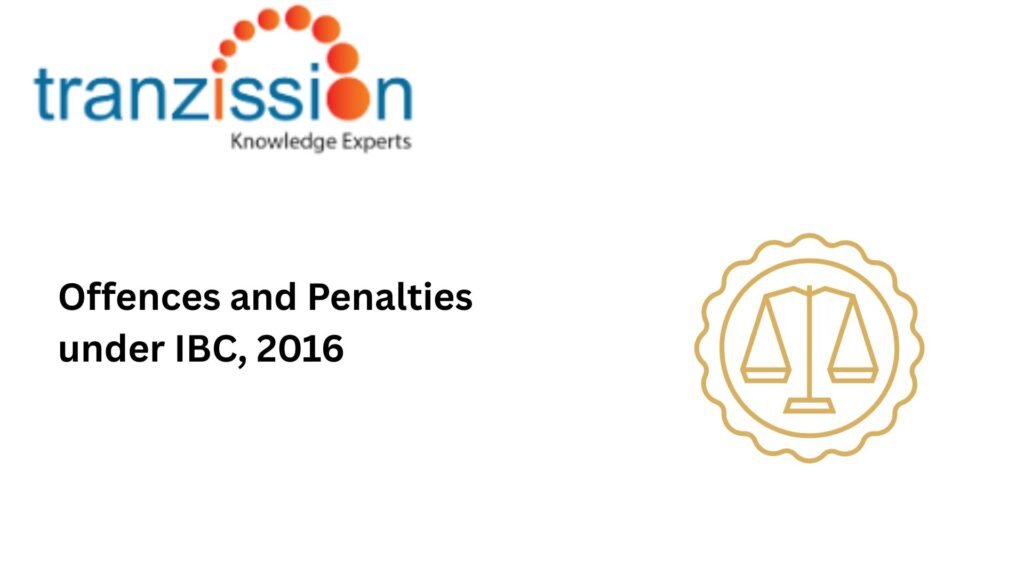
Table of Contents
The Offences and Penalties under IBC are listed Chapter VII of the Insolvency and Bankruptcy Code, 2016. The inclusion of Offences and Penalties under IBC in the Code are important for preventing fraud, misconduct, and ensuring that there is strict adherence to the Insolvency and Bankruptcy Code, 2016.
As per section 236 of the IBC, Offences and Penalties under IBC are triable by Special Courts and prosecution can be initiated by the Insolvency and Bankruptcy Board of India (IBBI). The NCLT primarily handles the insolvency resolution and liquidation processes, and while they can impose costs, they cannot try offences under the IBC. Penalties and fines, which require prosecution, are within the purview of the Special courts
A corporate debtor can obtain immunity from certain liabilities related to past Offences and Penalties under IBC after a resolution plan is approved under section 32A. However, this immunity is specifically for the corporate debtor and does not extend to individuals who may have been involved in those offences. This provision is intended to encourage resolution applicants to invest in distressed companies by removing the fear of facing prosecution for past actions of the previous management. In simpler terms, if a company has been mismanaged and has committed Offences and Penalties under IBC, the new owner which takes over the company under the new plan approved by the NCLT will not be liable for any past offences. However, the individuals who were responsible for the mismanagement and offences can still be prosecuted.
Offences and Penalties under IBC committed by the officer of the corporate debtor
| Section | Title | Offence | Penalty |
| 68 | Punishment for concealment of property. | Where the officer of the corporate debtor has:Wilfully concealment any property or part of of the corporate debtor or debt of Rs 10,000 or more due to or from the corporate debtorFraudulently removed any part of property worth Rs 10,000 of corporate debtor wilfully concealed, destroyed, mutilated or falsified any book or paper affecting or relating to the property of the corporate debtor or its affairswilfully made any false entry in any book or paper affecting or relating to the property of the corporate debtor or its affairsfraudulently parted with, altered or made any omission in any document affecting or relating to the property of the corporate debtor or its affairswilfully created any security interest over, transferred or disposed of any property of the corporate debtor which has been obtained on creditWillfully concealed any information of the Offences and Penalties under IBC mentioned above OR At any time after the insolvency commencement date, taken in pawn pledge , or otherwise received the property knowing it to be secured, transferred or disposed of. | Imprisonment: not less than 3 years, may extend to 5 years, orFine: not less than Rs. 1 lakh, may extend to Rs 1 crore,Both |
| 69 | Punishment for transactions defrauding creditors | Has made any gift/ transfer/ charge, or has connived in the execution of a decree/ order against the property of the corporate debtorHas concealed or removed any part of the debtor’s property within 2 months before the date of such judgement, decree, or order of the payment of money obtained against corporate debtor | Imprisonment:Not less than 1 yearMay extend to 5 yearsFine: not less than Rs. 1 lakh, may extend to Rs 1 crore,Both |
| 70 | Punishment for misconduct in course of corporate insolvency resolution process | On or before the insolvency commencement date:Does not disclose the relevant details of the debtor’s property that the resolution professional (RP) may requireDoes not deliver the debtor’s property or part of in his control or custody that he is required to deliver to the RPDoes not deliver documents of the debtor in his custody to the RP that he is required to deliverFails to inform the RP the information in his knowledge that a debt has been falsely proved by any person during the corporate insolvency resolution process (CIRP)Prevents the production of any book or paper affecting or relating to the property or affairs of the debtorEntering into transactions defrauding creditors or removing any part of the property of the corporate debtor within two months before the date of any unsatisfied judgement, decree or order for payment of money obtained against the corporate debtor | Imprisonment:Not less than 3 yearsMay extend to 5 yearsFine: not less than Rs. 1 lakh, may extend to Rs 1 crore,Both |
| If insolvency professional contravenes the provisions of this Part | Imprisonment:May extend to 6 monthsFine: not less than Rs. 1 lakh, may extend to Rs 5 lakhs,Both | ||
| 71 | Punishment for falsification of books of corporate debtor | On or after insolvency commencement date:destroys, mutilates, alters or falsifies any books, papers or securities, Makes is in the knowledge of making of any false or fraudulent entry in any register, books of account or document belonging to the corporate debtor with intent to defraud or deceive any person | Imprisonment:Not less than 3 yearsMay extend to 5 yearsFine: not less than Rs. 1 lakh, may extend to Rs 1 crore,Both |
| 72 | Punishment for wilful and material omissions from statements relating to affairs of corporate debtor | Makes any wilful and material omissions from statements relating to affairs of corporate debtor | Imprisonment:Not less than 3 yearsMay extend to 5 yearsFine: not less than Rs. 1 lakh, may extend to Rs 1 crore,Both |
| 73 | Punishment for falsification of books of corporate debtor | on or after the insolvency commencement date: makes a false representation or commits any fraud for the purpose of obtaining the consent of the creditors of the corporate debtor or any of them to an agreement with reference to the affairs of the corporate debtor, during the CIRP or the liquidation process;prior to the insolvency commencement date: has made any false representation, or committed any fraud, for that purpose | Imprisonment:Not less than 3 yearMay extend to 5 yearsFine: not less than Rs. 1 lakh, may extend to Rs 1 crore,Both |
| 75 | Punishment for false information furnished in application | Any person furnishes information in the application made under section 7, which isfalse in material particulars, knowing it to be false or omits any material fact, knowing it to be material | Fine: not less than Rs. 1 lakh, may extend to Rs 1 crore |
| 76 | Punishment for non-disclosure of dispute or payment of debt by operational creditor | An operational creditor has wilfully or knowingly concealed in an application under section 9 the fact that the corporate debtor had notified him of a dispute in respect of the unpaid operational debt or the full and final copayment of the debt; orany person who knowingly and wilfully authorised or permitted such concealment | Imprisonment:Not less than 1 yearMay extend to 5 yearsFine: not less than Rs. 1 lakh, may extend to Rs 1 crore,Both |
| 77 | Punishment for providing false information in application made by corporate debtor | Corporate debtor provides information an application under section 10, which is false in materials, knowing it to be false and omits any material fact, or any person who knowingly and willingly authorised or permitted the furnishing of such information | Imprisonment:Not less than 3 yearsMay extend to 5 yearsFine: not less than Rs. 1 lakh, may extend to Rs 1 crore,Both |
| 77A | Punishment for Offences and Penalties under IBC related to pre-packaged insolvency resolution process | Where the corporate debtor:provides false information in material particulars under section 54C knowing it is false or omits it knowing it was materialprovides false information in material particulars in the list of claims/ preliminary information memorandum under section 54C(1) knowing it is false or omits it knowing it was materialany person who knowingly and willingly authorised or permitted | Imprisonment:Not less than 3 yearsMay extend to 5 yearsFine: not less than Rs. 1 lakh, may extend to Rs 1 crore,Both |
Sections 68-69 of the IBC address fraudulent activities involving deception, concealment of facts, or other misconduct. As per this section, if the accused can demonstrate they did not have the specific intent to commit fraud, it could be used as a mitigating factor during sentencing or other legal proceedings. This defence hinges on proving that the actions, while possibly appearing fraudulent on the surface, were not done with the deliberate purpose of deceiving or causing harm. This is related to sections Section 74(1) and Section 74(3). Section 74(1) focuses on the liability of a corporate debtor’s officer for knowingly or willfully violating the moratorium under section 14 of the IBC. Section 74(3), on the other hand, addresses liability for contravention of a resolution plan that is binding under section 31, and can apply to the corporate debtor, its officers, creditors, or any other person bound by the resolution plan.
Read more: Role of NCLT in insolvency proceedings
Offences and Penalties under IBC by insolvency professional agency or insolvency professional
| Section | Title | Offence | Penalty |
| 70(2) | Punishment for misconduct in course of corporate insolvency resolution process | If insolvency professional contravenes the provisions of Part II | Imprisonment:May extend to 6 monthsFine: not less than Rs. 1 lakh, may extend to Rs 5 lakhs,Both |
| 185 | Punishment of contravention of provisions | If insolvency professional contravenes the provisions of Part III | Imprisonment:May extend to 6 monthsFine: not less than Rs. 1 lakh, may extend to Rs 5 lakhs,Both |
| 220 (3) | Appointment of Disciplinary Committee | Insolvency Professional Agency, Insolvency Professional, Information Utility contravenes provisions of this IBC, rules, regulations, | Disciplinary Committee imposes penalty:3 times amount of lossOR3 times amount of unlawful gain Whichever is higher |
Offences and Penalties under IBC by any person on whom the resolution plan is binding
| Section | Title | Offence | Penalty |
| 71 | Punishment for falsification of books of corporate debtor | On or after insolvency commencement date:destroys, mutilates, alters or falsifies any books, papers or securities, Makes is in the knowledge of making of any false or fraudulent entry in any register, books of account or document belonging to the corporate debtor with intent to defraud or deceive any person | Imprisonment:Not less than 3 yearsMay extend to 5 yearsFine: not less than Rs. 1 lakh, may extend to Rs 1 crore,Both |
| 74(3) | Punishment for contravention of moratorium or the resolution plan | Corporate debtor or any of its officers violates, or any person on whom resolution plan is binding under section 31 | Imprisonment:Not less than 1 yearMay extend to 5 yearsFine: not less than Rs. 1 lakh, may extend to Rs 1 crore,Both |
| 75 | Punishment for false information furnished in application | Any person furnishes information in the application made under section 7, which isfalse in material particulars, knowing it to be false or omits any material fact, knowing it to be material | Fine: not less than Rs. 1 lakh, may extend to Rs 1 crore |
Section 32 of the IBC provides immunity to the corporate debtor and its assets under other laws, after a resolution plan is approved, but does not extend to individuals or promoters in Offences and Penalties under IBC committed prior the the commencement of the insolvency process. The JSW Steel and Dunar Food cases illustrate this principle, showing that while the corporate entity receives a clean slate, individuals responsible for past wrongdoings can still be held liable. In the JSW Steel and BPSL case, the ED continued its investigations and actions against individuals involved in the alleged money laundering activities related to BPSL, highlighting that section 32A shields the corporate entity, not the individuals. Similarly in the Dunar Foods case, the court discharged the corporate debtor under this section because the resolution plan had been approved and resulted in a change of control. However, the court explicitly stated that this discharge did not extend to individuals or promoters who were co-accused in the NSEL scam, demonstrating that section 32A is not intended to protect wrongdoers.
Read more: How do international insolvency laws affect local practices?
Offences and Penalties under IBC by creditors or operational creditor
| Section | Title | Offence | Penalty |
| 74(1) | Punishment for contravention of moratorium or the resolution plan | Corporate debtor or any of its officers violates of section 14, knowingly or willingly committed, authorised, permitted | Imprisonment:Not less than 3 yearsMay extend to 5 yearsFine: not less than Rs. 1 lakh, may extend to Rs 1 crore,Both |
| 74(1) | Punishment for contravention of moratorium or the resolution plan | Creditor violates section 14, knowingly or willingly committed, authorised, permitted | Imprisonment:Not less than 1 yearMay extend to 5 yearsFine: not less than Rs. 1 lakh, may extend to Rs 1 crore,Both |
| 76 | Punishment for non-disclosure of dispute or payment of debt by operational creditor | An operational creditor has wilfully or knowingly concealed in an application under section 9 the fact that the corporate debtor had notified him of a dispute in respect of the unpaid operational debt or the full and final copayment of the debt; orany person who knowingly and wilfully authorised or permitted such concealment | Imprisonment:Not less than 1 yearMay extend to 5 yearsFine: not less than Rs. 1 lakh, may extend to Rs 1 crore,Both |
The IBC, specifically sections 8 and 9, outlines the process for operational creditors to initiate the insolvency process. Section 9(5)(2)(d) mandates the rejection of an application if a notice of dispute has been received by the operating creditor or if a dispute is recorded with the information utility. Operational creditors must disclose any exciting disputes or payment related to their claims. Failing to do so, or providing false information, can lead to imprisonment for 1 to 5 years and a fine. This measure is in place to ensure the integrity and transparency of the CIRP.
Offences and Penalties under IBC by Bankrupt
| Section | Sub-section | Title | Offence | Penalty |
| 186 | (a) | Punishment for false information, concealment, etc, by bankrupt | Imprisonment:May extend to 6 monthsFine:Not less than Rs 5 lakhsBoth | |
| (b) | Imprisonment:May extend to 1 yearFine:Not less than Rs 5 lakhsBoth | |||
| (c) | Imprisonment:May extend to 6 monthsFine:Not less than Rs 5 lakhsBoth | |||
| (d) | Imprisonment:May extend to 6 monthsFine:Not less than Rs 5 lakhsBoth | |||
| (e) | Imprisonment:May extend to 2 yearsFine:Not less than 3 times | |||
| (f) | Imprisonment:May extend to 1 yearFine:Not less than Rs 5 lakhsBoth | |||
| 187 | (a) | Punishment for certain actions | fraudulently misapplied, retained or accounted for any money or propertycomprised in the estate of the bankrupt | Imprisonment:May extend to 3 yearsFine:Less than 3 times the amount of loss caused, or likely to have been caused.Both |
| (b) | Punishment for certain actions | wilfully acted in a manner that the estate of the bankrupt has suffered any loss in consequence of breach of any duty of the bankruptcy trustee in carrying out his functions under section 149 | Imprisonment:May extend to 3 yearsFine:Less than 3 times the amount of loss caused, or likely to have been caused.Both | |
| If such loss/ unlawful gain is not quantifiable | Total amount of fine should not exceed Rs. 5 lakhs |
These sections pertain to Offences and Penalties under IBC related to individuals and partnership forms under Part III of the IBC. Section 187(b) outlines penalties for certain actions by trustees, and addresses actions like providing false information, concealing assets, or absconding after the insolvency commencement date. For instance, if a trustee intentionally hides assets worth a certain amount, they could be penalized with a fine that is three times that amount, if the loss is quantifiable. However, there is a provision that if the loss or unlawful gain is not quantifiable, the total fine imposed will not exceed a specified limit, such as Rs. 5 lakhs.
Amendments Related to Offences and Penalties under IBC
The Insolvency and Bankruptcy Code (Second Amendment) Act, 2018 was enacted on 17th August, 2018. As per this Amendment, sections 69 officers of the corporate debtor for defrauding creditors and section 76 on the punishment for non-disclosure of dispute or payment of debt by operational creditor:
| Section | Title | Prior to Amendment, 2018 | After Amendment, 2018 |
| 69 | Punishment for transactions defrauding creditors | “On or after the insolvency commencement date, if” | The word “if” substituted |
| 76 | Punishment for non-disclosure of dispute or payment of debt by operational creditor | “Repayment” in the marginal title | “payment” |
| 76(a) | Punishment for non-disclosure of dispute or payment of debt by operational creditor | “repayment” | “payment” |
The primarily goal of the 2018 Amendment was to remove ambiguities and streamline the insolvency process for various stakeholders, including homebuyers and financial creditors. Specifically, it modified section 69 by simplifying the language and potentially broadening its applicability regarding transactions that defraud creditors. The amendment replaced the phrase “On or after the insolvency commencement date, if” with the word “If”. This change removes the explicit link to the insolvency commencement date, making the provision applicable to a wider range of situations.
Legal Framework: Chapter VII and Special Courts under Section 236
Section 236(1) mandates certain Offences and Penalties under IBC under the IBC be tried by Special Courts established under Chapter XXVIII of the Companies Act, 2013. Furthermore, section 236(2) stipulates that no court can take cognizances of an offence under the IBC, except upon a complaint made by the IBBI, the Central Government, or a person authorised by the Central Government. Further, the Supreme Court in Kalyani Transco case has confirmed that Enforcement Directorate (ED) attachments under the Prevention of Money Laundering Act (PMLA) do not override the jurisdiction and has clarified that validly made and confirmed attachments by the ED cannot be undone by the IBC. This means that if the ED has attached assets of a company under PMLA, these assets remain attached even during the insolvency process.
Defences and Procedural Safeguards under IBC
Proving a lack of fraudulent intent, such as that under section 68 Offences and Penalties under IBC, requires demonstrating that the actions were taken in good faith, without the intention to receive or conceal information related to the company’s assets or financial status.The non-obstante clause in section 236 ensures that the legislative intent of having Special Courts for the IBC is upheld, even if there are other potential legal avenues. It provides clarity and certainty in the legal process, preventing conflicts and ensuring that the specialized jurisdiction of Special Courts is respected.
Summary Table: Stakeholders & Offences and Penalties under IBC
|
Section |
Stakeholder |
Offence Description |
Max Imprisonment & Fine |
Defences Available |
|
68 |
Officer of Corporate debtor |
Specifies that officers of a corporate debtor can be penalized for concealing property, fraudulently removing property, or falsifying records related to the corporate debtor’s property or affairs. |
1- 5 years, Rs. 1 lakh – 1 crore, or both |
|
|
69 |
Officer of the corporate debtor or corporate debtor |
Specific actions with the intent to defraud creditors |
1- 5 years, Rs. 1 lakh – 1 crore, or both |
|
|
70 |
Officer of the corporate debtor |
Punishment for misconduct in the course of CIRP, such as failure to disclosure or deliver property, books, or information, to the RP who engage in fraudulent accounting practices |
1- 5 years, Rs. 1 lakh – 1 crore, or both |
Proving lack of intent to commit the misconduct |
|
71 |
Any person |
Anyone who, on or after, the ICD, destroys, mutilates, alters, or falsifies any books, papers, or securities, or make false or fraudulent entries in any register, account books, or documents belonging to the corporate debtor with the intent to defraud or deceive, is liable to punishment. |
3- 5 years, Rs. 1 lakh – 1 crore, or both |
|
|
72 |
Officer of the corporate debtor |
Knowingly and intentionally omit crucial information from financial statements or other documents related to the company’s financial status |
3- 5 years, Rs. 1 lakh – 1 crore, or both |
|
|
73 |
Officer of corporate debtor |
Offence of making false representations or committing fraud to obtain creditor consent during CIRP or liquidation |
3- 5 years, Rs. 1 lakh – 1 crore, or both |
|
|
74 |
Corporate debtor or Officer of the corporate debtor |
Punishment for violating the moratorium or the resolution plan approved by the Adjudicating Authority |
1-5 years, Rs. 1 lakh – 1 crore, or both |
|
|
75 |
Any person who furnishes information in the application under section 7 |
Knowingly furnish false information in a material particular or omit a material fact in section 7 application. |
Rs. 1 lakh – 1 crore, or both |
|
|
76 |
Operational creditor |
If an operational creditor knowingly or wilfully conceals the fact that a corporate debtor has notified them of a dispute or has already paid the debt, they can be penalized. |
1-5 years, Rs. 1 lakh – 1 crore, or both |
Proving that there was no wilful non-disclosure of a dispute or repayment |
|
77 |
Corporate debtor, or any person submitting such information |
Addresses situations where a corporate debtor knowingly provides false information or omits material facts in a section 10 application, or if any person authorizes or permits such actions. |
3-5 years, Rs. 1 lakh – 1 crore, or both |
|
|
77A |
Corporate debtor |
Addresses situations where the corporate debtor knowingly provides false information or omits material facts in the application for the pre-packaged insolvency process or in the list of claims. |
3-5 years, Rs. 1 lakh – 1 crore, or both |
|
|
185 |
Insolvency professional |
Deliberately contravenes the IBC provisions |
6 months, Rs. 1 lakh-5 lakhs, or both |
|
|
186 |
Bankrupt individuals |
Knowingly making false representations, concealing material information during the bankruptcy process, or failing to account for significant loss of property |
1 year, Rs.5 lakhs, both |
|
|
187 |
Bankruptcy trustee |
Punishment for certain actions related to a bankrupt’s estate, outline two main Offences and Penalties under IBC; misapplying or misusing the bankrupt’s assets and intentionally causing loss to the estate through misconduct. |
3 years, Rs. 5 years |
|
|
220(3) |
Insolvency Professional Agency, Insolvency professional, Insolvency utility |
Offences and Penalties under IBC for contraventions of the IBC, or related rules and regulations, which resulted in any unlawful gain made |
Rs 1 crore when losses or gains are not quantifiable |
|
Conclusion
The Insolvency and Bankruptcy Code, 2016 ensures that any Offences and Penalties under IBC such asmalpractices, fraud, and misconduct of corporate debtors, creditors, and other stakeholders, including insolvency professionals are liable for their actions. These provisions are important for so that the integrity of the insolvency and bankruptcy processes and ensuring that there is no contravention to the resolution plan or the Insolvency and Bankruptcy Code, 2016, rules, or regulations.

